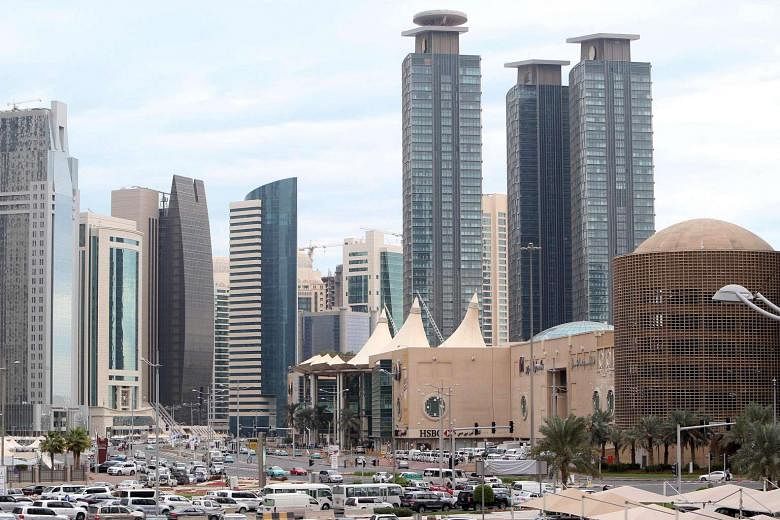DUBAI (AFP) - Saudi Arabia, Bahrain and the United Arab Emirates severed ties with Gulf neighbour Qatar on Monday (June 5) over accusations it supports extremism, with Egypt, Yemen and Maldives following suit.
Here are the main developments that led to the unprecedented crisis between Qatar and its Gulf neighbours:
May 20
Qatar says it is the victim of a smear campaign and rejects accusations of it supporting "terrorism" ahead of a landmark visit by US President Donald Trump to Saudi Arabia.
May 21
The Emir of Qatar Sheikh Tamim bin Hamad al-Thani meets Trump on the sidelines of a summit in Riyadh.
May 24
Qatar says its national news agency has been hacked by unknown parties who have posted "false" statements attributed to the emir, in which he speaks favourably of Iran, Palestinian Islamist movement Hamas, the Muslim Brotherhood and the Lebanese shiite militia Hezbollah.
Qatar denies all the comments and says it is investigating the alleged hacking, but Gulf media continues to run the statements.
May 25
Emirati newspaper Al-Bayan runs the headline "Qatar divides the Arabs" on its front page, and Saudi-owned daily Al-Hayat speaks of "large-scale resentment" over Qatar.
Qatari Foreign Minister Sheikh Mohammed bin Abdulrahman Al-Thani says Doha is the victim of a "hostile media campaign", particularly in the United States.
May 28
UAE State Minister for Foreign Affairs Anwar Gargash says Gulf countries are going through a new "deep crisis", urging Qatar without naming it to "change its attitude and re-establish confidence and transparency".
June 2
A Qatari official says FBI agents are helping Doha in investigating the source of the alleged hacking of its official news agency.

